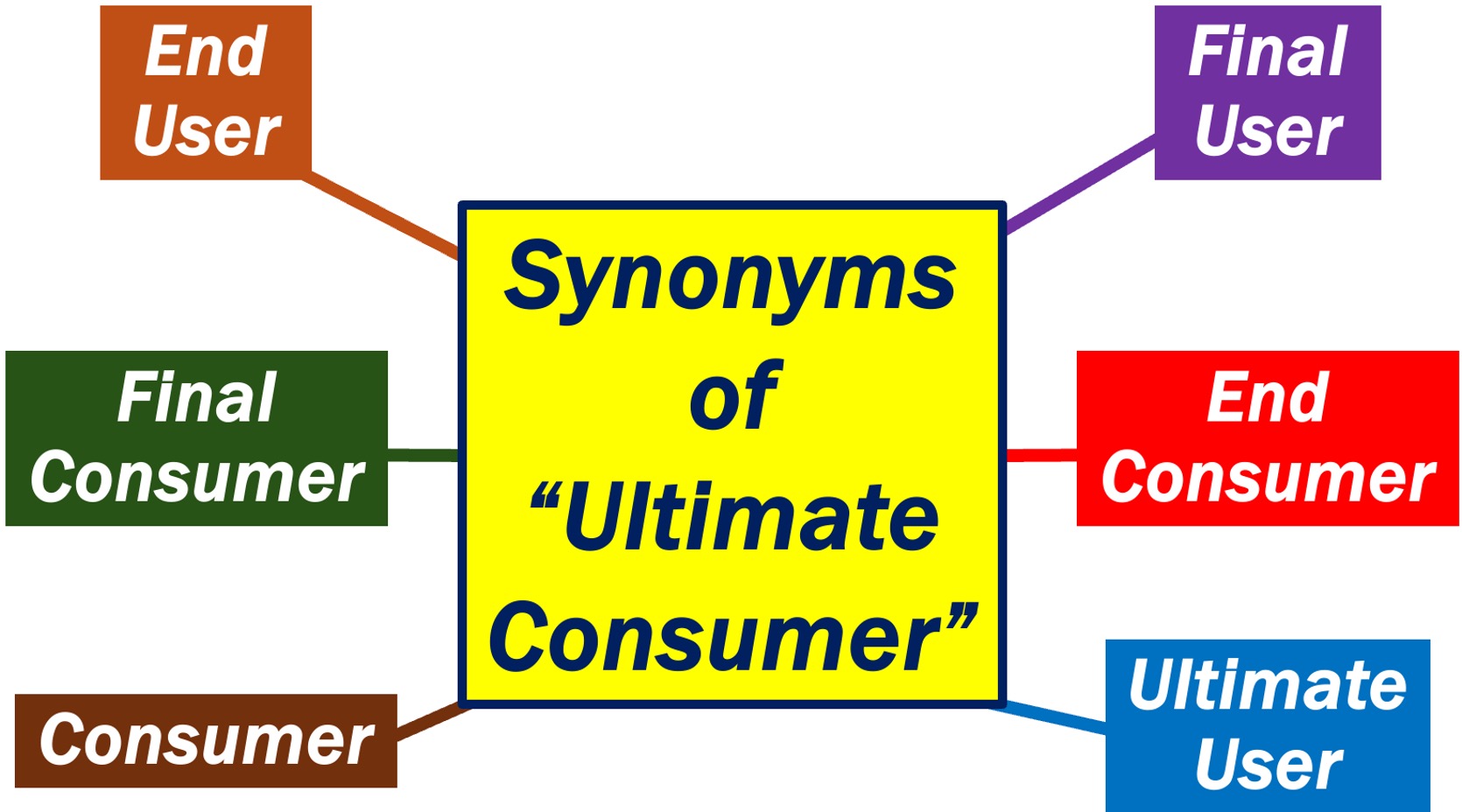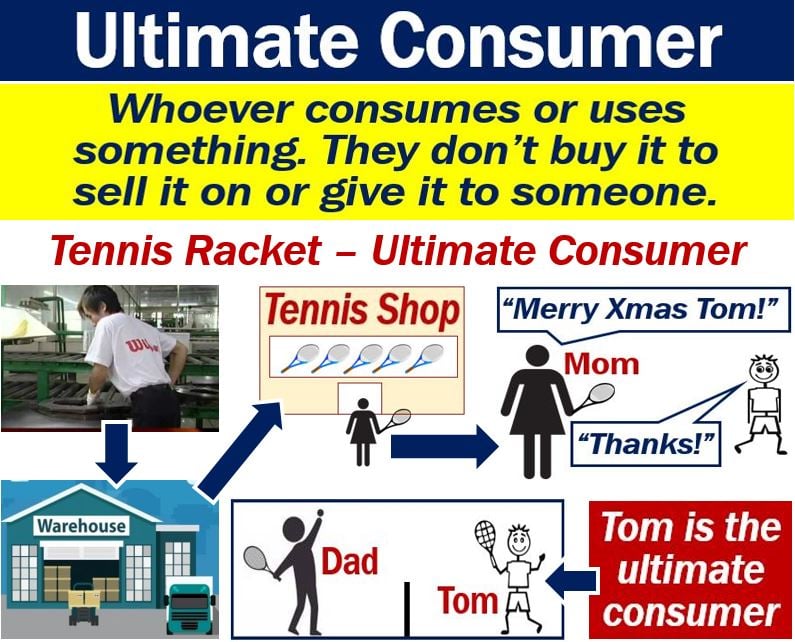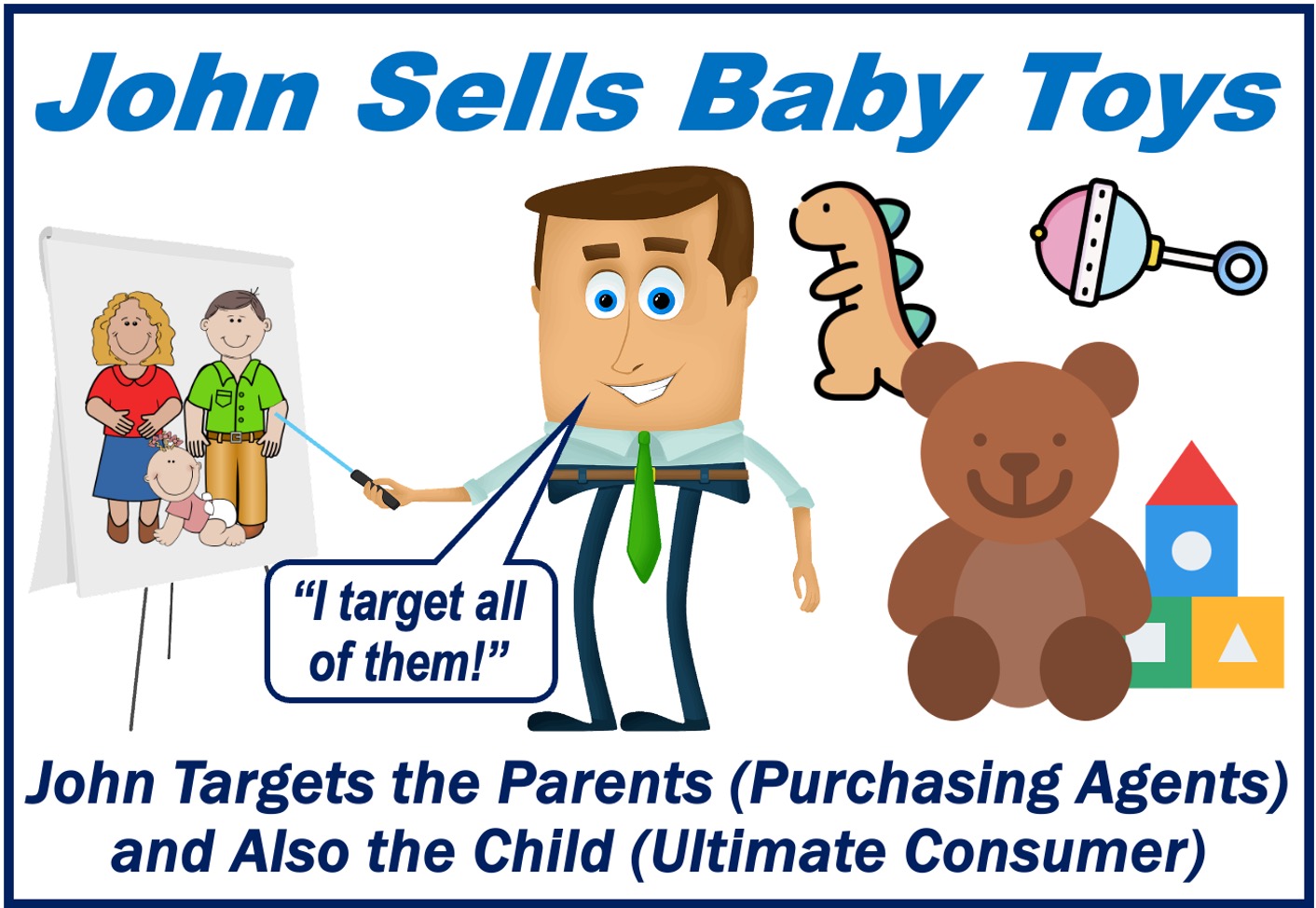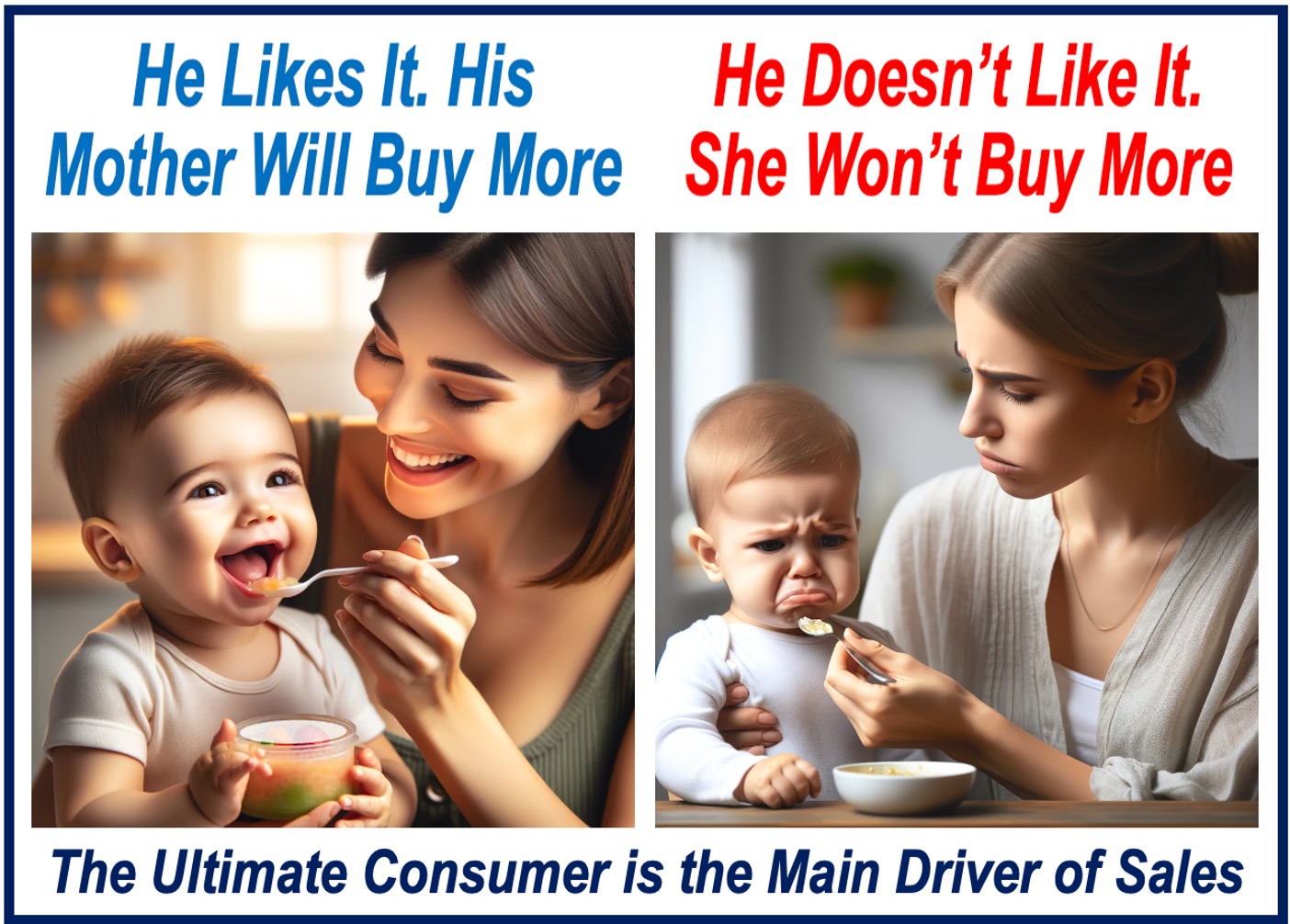The Ultimate Consumer is the person or group that actually uses or consumes a product. The ultimate consumer might not be the same as the buyer. The individual or entity who buys something is the purchasing agent. For marketing executives, it is important to know who the ultimate consumer is. It is important to know because they are usually the drivers of sales.
Many people use the term ‘final consumer’ instead of ultimate consumer.
After a product has passed through all the stages of production, an entity buys it. That entity may be a wholesaler. The wholesaler then sells it to a retailer, who subsequently sells it to a purchaser.
Let’s imagine that you are the purchaser. You then give that product to somebody. That person is the ultimate consumer. People who buy something and then give it to somebody are not ultimate consumers.

Consumer
The term ‘consumer‘ on its own may also mean the ultimate user or consumer of something. Adding ‘ultimate’ is simply a more emphatic way of saying that for the product, the ‘ultimate consumer’ is the end of the road.
In the world of computer software, the term ‘end user‘ is common. In a software context, it means the same as ‘ultimate customer.’

The ultimate consumer consumes final goods, i.e., consumer goods.
The ultimate consumer matters
As far as marketing people are concerned, the ultimate consumer usually matters as much as the purchasing agent. In fact, they sometimes matter more.
Let’s imagine Jane, a mother, goes out Christmas shopping. She has a son, Jacob, who is ten years old.
Jacob wants a video game console device for Christmas. He has been asking for one all year.
Jane goes to a department store to see what offers there are. The store stocks the Sony Playstation, Nintendo Switch, and XBox.
Jane prefers the Nintendo Switch, but Jacob says he wants the XBox. Which one is Jane most likely to buy?
If Jane is like most other parents, and price is not a determining factor, she will buy what Jacob wants. If price were a determining factor, i.e., if Jacob’s choice were triple the price of the others, she might decide differently.

Therefore, who should the marketing executives of the console companies target? Clearly, they should target Jacob, because he is the ultimate consumer, and more importantly, his choice decides what sells.
Ultimate consumer – a baby
If the ultimate consumer cannot speak, such as a baby, a parent will decide. However, the baby will still influence the parent’s choice.
If a mother is buying baby food, what is she most likely to buy? She will buy food that she knows the baby will consume. In other words, she won’t buy food that the baby does not like or refuses to eat.

Even with diapers (British: nappies), the baby influences the parent’s choice. If a substance makes a baby’s bottom go red and sore, the parents will avoid diapers that contain it.
Therefore, for baby food and diaper makers, babies’ tastes, preferences, and other characteristics matter greatly.
